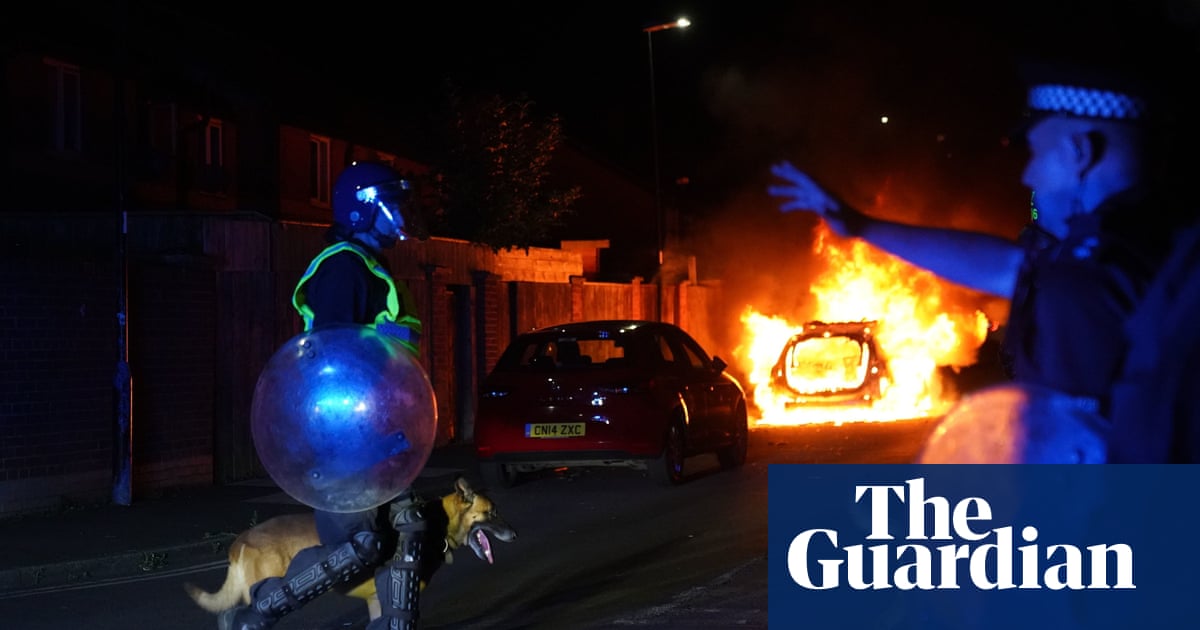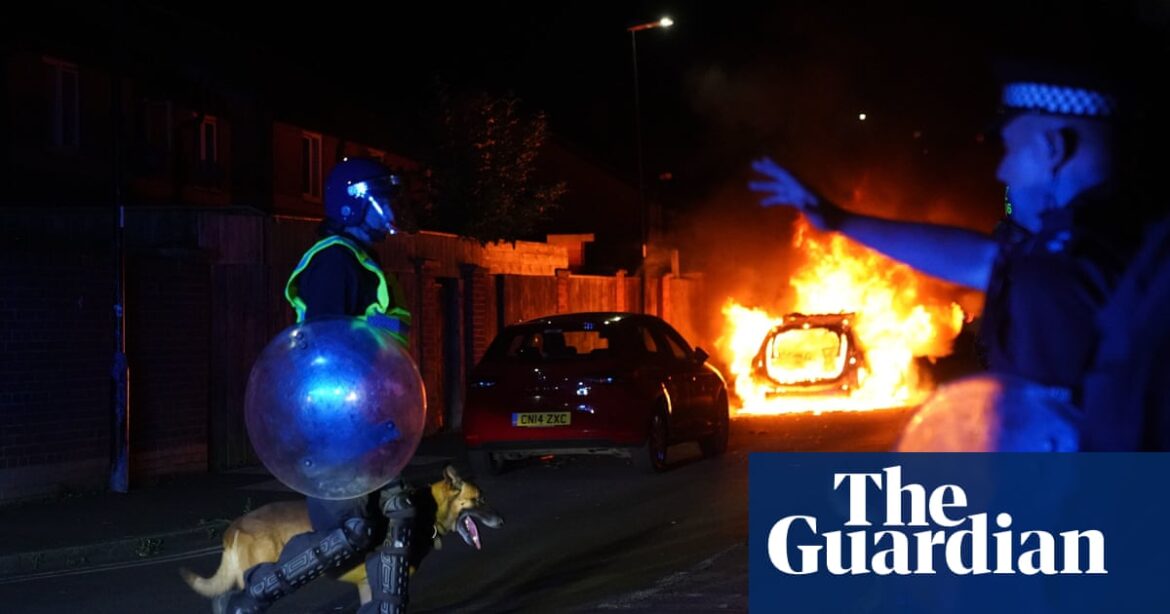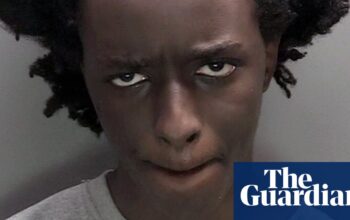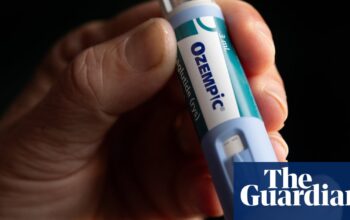
A 14-year-old boy was spared prosecution for involvement in the riots that gripped parts of the UK this summer because his parents gave him a stern telling-off, whereas others had appeared to regard the disorder as a bit of fun, the director of public prosecutions has said.
Stephen Parkinson drew a comparison with another case, in which the mother of a 12-year-old boy was ordered to pay £1,200 in compensation to his victims, and the child was given a referral order, after she went on holiday to Ibiza rather than attend court.
“We’ve come across instances, anecdotally, of families regarding it as a day out, to go and just join in the disorder. But, conversely, we had an instance where a family marched their 14-year-old to the police station, having seen on social media that that individual had been involved in the disorder,” Parkinson said.
“And, actually, we took the decision that the wrath that had been visited on that child by his parents was more effective than anything the criminal justice system could deliver. And so we took no further action.”
Parkinson, who took up the post as head of the Crown Prosecution Service (CPS) in November last year, said prosecutors were “very alive” to the risk of children being criminalised unnecessarily after becoming involved in the riots that followed three girls being fatally stabbed in Southport.
In the case of the 12-year-old, who cannot be named because of his age, a sentencing hearing at Manchester magistrates court was adjourned because of the mother’s absence. The district judge Joanne Hirst said she was “frankly astonished” she had chosen to fly abroad “one day before her 12-year-old son comes to court”, leaving him accompanied by his uncle instead.
The woman said it had not been made clear to her she needed to be in court, and that the holiday had cost £1,000. The judge ordered her to take part in a six-month parenting course and pay the compensation. The boy was given a 12-month referral order after admitting two counts of violent disorder; a measure designed to prevent him committing further crimes.
“It’s very troubling that youngsters have been being sucked into this and, you know, I’m fully alive to the consequences of a conviction on someone’s life. So we do have to think very carefully about the decisions we take,” Parkinson told PA Media news agency.
He added: “Sometimes the state, I’m afraid, has to intervene. And the consequence of an intervention like the 12-year-old is a referral order, which would then mean that rehabilitation can take place and we can divert them from the path of criminality.
“That’s the objective with youngsters, not to criminalise them, it’s to put them on the right path. We have people who are specially trained around youth work, because it’s important we do make the right decisions.”
In August, the head of the body that oversees the youth justice system in England and Wales told the Guardian children who took part in the riots should only be prosecuted as “a last resort”.
Keith Fraser, the chair of the Youth Justice Board, said it was a “real, real worry” that boys as young as 11 were involved in the disorder. But he cautioned against making snap decisions to bring them before the courts.
Fraser said: “If there was a message that I’d want to get out here it’s that we don’t come to really quick decisions about what should happen to children who’ve been involved in the disorder, it’s that we consider it on a case-by-case basis.”
Source: theguardian.com



